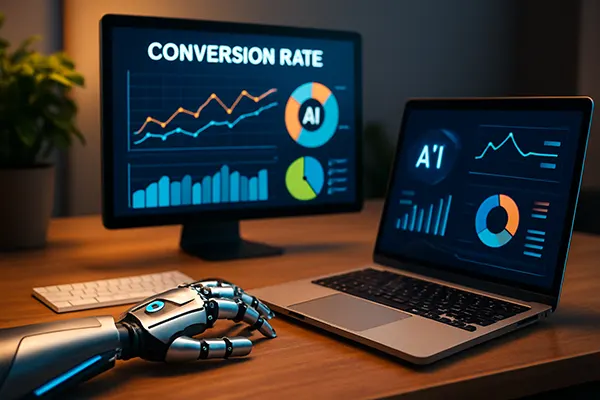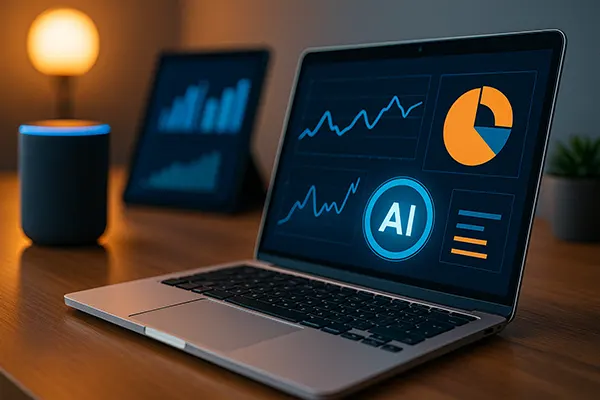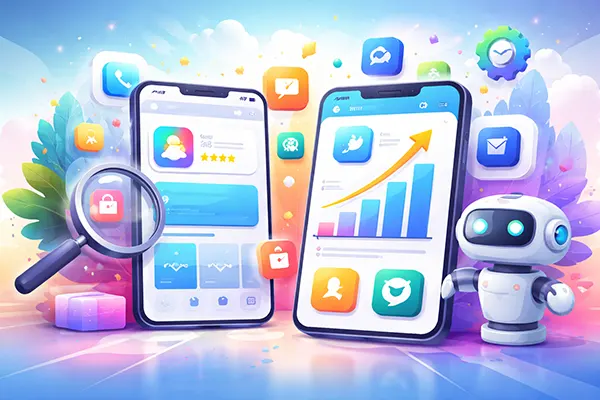
AI-Powered A/B Testing: A New Era of Conversion Rate Optimisation in Digital Marketing
A/B testing has long been a trusted method for improving website performance and marketing effectiveness. However, with artificial intelligence stepping into the game, this process is experiencing a fundamental transformation. AI-driven A/B testing offers marketers not only automation and speed but also real-time optimisation and data-driven intelligence that surpasses traditional approaches.
How AI Transforms the A/B Testing Process
Traditional A/B testing involves creating multiple versions of a web page or element, then manually analysing user interactions to determine which version performs best. While effective, it can be time-consuming and data-limited. AI introduces machine learning algorithms that can dynamically adjust test variables and interpret results with higher accuracy and efficiency.
AI tools use behavioural prediction models to identify user preferences more quickly. Instead of waiting for statistically significant sample sizes, AI can detect patterns from early user behaviour and begin implementing adjustments in near real-time. This significantly reduces the testing cycle and maximises conversions faster.
Furthermore, AI enables multivariate testing on a scale previously unmanageable. It can simultaneously test numerous elements — such as button colours, headlines, layouts, or call-to-action placements — and determine optimal combinations without human bias.
Benefits of AI-Powered Testing for Marketers
One of the most significant advantages of AI-based testing is its ability to adapt continuously. Rather than stopping the test once a winner is found, AI systems keep refining and adapting based on new user data. This ensures the campaign remains effective as user behaviour evolves over time.
AI also provides richer, contextual insights by analysing factors such as user location, device type, time of day, and behavioural history. These insights lead to hyper-personalised experiences, which are proven to drive higher engagement and conversion rates.
Additionally, marketers can save substantial resources by letting AI handle the heavy lifting. With automated hypothesis generation and analysis, teams can focus on strategic decisions and creative development rather than manual data crunching.
Real-World Applications and Success Stories
Many leading eCommerce and SaaS companies are already reaping the benefits of AI in A/B testing. For instance, Amazon and Netflix use machine learning to optimise UI components and recommend products in real-time, significantly improving their conversion rates and customer satisfaction.
Smaller businesses are also benefiting through tools like Google Optimize 360, Adobe Target, and Evolv AI. These platforms offer plug-and-play AI functionality that integrates with existing analytics ecosystems, making advanced experimentation accessible to teams of all sizes.
In one recent case, a mid-sized retail company reported a 27% lift in email click-through rates after using AI to test subject lines and send times. By dynamically adjusting campaign elements, the AI engine achieved in days what manual testing might have taken weeks to realise.
Tools Leading the AI Testing Revolution
Several platforms are at the forefront of the AI-powered A/B testing revolution. Optimizely, for example, leverages adaptive experimentation and predictive analytics to fine-tune campaigns continuously. Its Stats Engine evaluates results faster without compromising accuracy.
Adobe Target combines AI with automated personalisation, allowing businesses to serve tailored content at scale. It integrates with Adobe Sensei, the company’s AI framework, to deliver real-time decision-making capabilities across digital touchpoints.
Meanwhile, VWO and Evolv AI offer multivariate testing environments supported by reinforcement learning, a type of AI that learns and optimises based on feedback loops. These tools represent a future where experimentation becomes ongoing and seamless, rather than episodic.

Ethical Use of AI in Testing and User Experience
While AI offers powerful advantages, marketers must ensure ethical data use. Transparency in how personal data is processed and used in testing is crucial to maintain user trust and comply with regulations like GDPR and CCPA. Clear communication with users about data practices is a must.
Another ethical consideration is fairness. AI algorithms must be monitored to avoid biased outcomes. For example, if an AI system is trained on data skewed toward certain demographics, it could inadvertently disadvantage other user groups. Inclusive data sets and regular audits are necessary to mitigate these risks.
Lastly, over-personalisation may lead to privacy concerns. While dynamic content can improve engagement, it should not cross the line into manipulation or intrusion. Businesses must find a balance between relevance and respect for user autonomy.
The Future Outlook of AI-Driven Optimisation
The integration of AI in A/B testing is just the beginning. With advancements in generative AI and natural language processing, future systems may autonomously create and test entire campaign variations — from visuals to messaging — without human intervention.
Voice interfaces and augmented reality are also expected to reshape digital user journeys. AI-driven testing will evolve to optimise these new mediums, ensuring consistent and frictionless user experiences across channels and platforms.
Ultimately, as AI continues to mature, its role in conversion optimisation will become indispensable. Businesses that invest early in ethical and innovative AI experimentation will gain a significant competitive edge in the evolving digital landscape.



